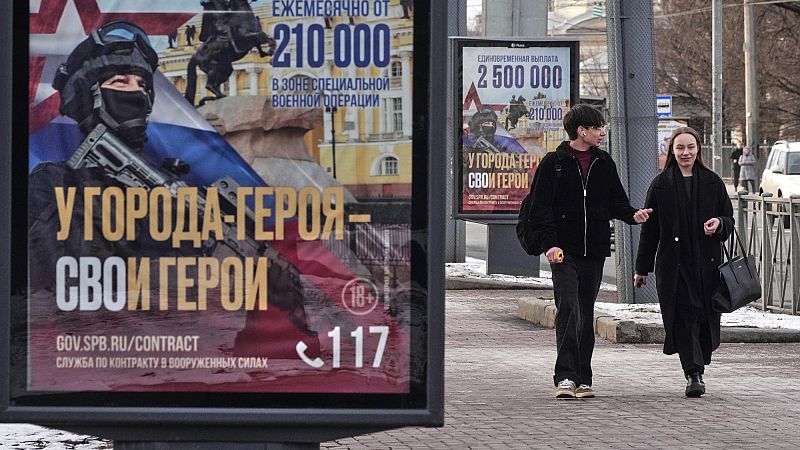
Russian authorities have banned Amnesty International, making involvement with the international human rights group illegal, the Russian Prosecutor General's office said on Monday.
Branded an “undesirable organisation” – a designation that criminalises involvement or support of such groups — the international NGO is the latest target of the Kremlin’s crackdown on dissent. The law has been widely criticised by human rights advocates.
A number of journalists, activists and others who have spoken out against the Kremlin have been imprisoned or banned from operating in the country since Moscow invaded Ukraine in February 2022.
The label means that Amnesty International must cease its work in Russia. Anyone cooperating with or supporting the organisation, even by sharing a report on social media, risks prosecution.
'You must be doing something right'
Amnesty International’s Secretary General Agnès Callamard described the action taken against the organisation she leads as "part of the Russian government’s broader effort to silence dissent and isolate civil society".
"In a country where scores of activists and dissidents have been imprisoned, killed or exiled, where independent media has been smeared, blocked or forced to self-censor, and where civil society organisations have been outlawed or liquidated, you must be doing something right if the Kremlin bans you," Callamard said in a statement sent to Euronews.
She said Amnesty International would not be cowed, and vowed to "redouble" the organisation's efforts to expose Russia's "egregious human rights violations" both domestically and internationally.
“The authorities are deeply mistaken if they believe that by labelling our organisation 'undesirable' we will stop our work documenting and exposing human rights violations – quite the opposite," Callamard emphasised.
Amnesty International will also continue to fight for prisoners of conscience to be released and for the repeal of "repressive laws" that prevent dissent and freedom of speech, Callamard said.
“No authoritarian assault will silence our fight for justice. Amnesty will never give up or back down in its fight for upholding human rights in Russia and beyond.”
More than 200 organisations, ranging from independent news outlets to think tanks and anti-corruption groups have been slapped with the “undesirable organisation” designation.
Individuals accused of having links to banned organisations face severe repression: a Russian court last month sentenced four journalists to five-and-a-half years in prison after convicting them on extremism charges, over allegations they worked for an anti-corruption group founded by the late opposition leader Alexei Navalny.
In January, three lawyers who had previously represented Navalny were also sentenced to prison. Their charges – allegations of involvement with extremist groups – were linked to Navalny's organisations, which Russian authorities banned in 2021.
In its statement, the Russian Prosecutor General's office accused Amnesty International of running “Russophobic projects" and activities aimed at Russia's “political and economic isolation”. It also accused it of supporting "extremist organisations and financing the activities of foreign agents”.
Crackdown on dissent
This development also comes against the backdrop of the Kremlin's further expansion of its "foreign agent" label, a law introduced in 2012 and expanded upon in 2022.
In April, President Vladimir Putin signed a bill into law that broadened the criteria for designating individuals and groups as such to include those connected to foreign government agencies and international associations that Russia is not a member of.
Since Russia’s full-scale invasion of Ukraine in early 2022, Amnesty International has released reports accusing Moscow of crimes against humanity and has spoken out against the Kremlin's crackdown on dissent.
The international human rights organisation last week condemned a five-year prison sentence handed to Russian civil society activist Grigory Melkonyants as a “brazen and politically motivated clampdown on peaceful activism”.
It also condemned the state’s crackdown on book publishers over alleged “LGBTI propaganda” last week. “This shameless heavy-handed use of state apparatus against literature is as absurd as it is terrifying,” said Natalia Zviagina, Amnesty International’s Russia director.
She called for the release of the publishing professionals, the charges against them to be dropped, and “the ongoing persecution of LGBTI people, organisations and initiatives in Russia must be brought to an end”.
Amnesty International was founded in 1961, and carries out research and campaigns against human rights abuses globally. Its work centres on issues including political repression and torture, and it advocates for the release of those it considers unjustly imprisoned.







